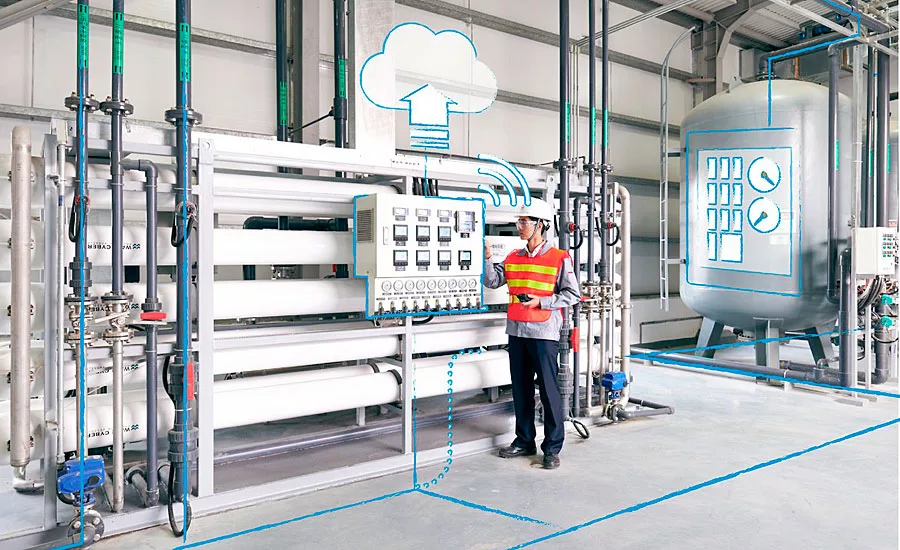Embracing a More Digitalized and Intelligent Future



In recent years we have seen major advancements in the world’s industrial capabilities enabled by disruptive technologies including big data, the Internet of Things (IoT), cloud computing, artificial intelligence, and many others. This development has been captured in Germany’s high-tech national strategy, known as “Industry 4.0”, which reflects optimism in the advent of a fourth industrial revolution that would not only transform the manufacturing sector, but also impact working cultures and the wider society.
Similar initiatives have also been mooted in Asia, from Singapore’s “Smart Nation Initiative” to Japan’s “Society 5.0” agenda to embrace a “Super Smart Society,” and China’s agenda to pursue industrial upgrades and smart manufacturing, focusing on strategically critical areas such as big data and artificial intelligence.
Digitization has been a disruptor and driving force behind the development of a wide range of industries such as entertainment, retail and finance, among others. It will also bring a quantum leap for the manufacturing sector. It is vital for manufacturing companies to grasp the opportunities to reshape their operations and businesses, and transform the entire organization.
Smart Factories: More Automated, Transparent and Optimized Manufacturing
We are now reaching a tipping point when digitalization will profoundly reshape the manufacturing sector, by penetrating every aspect including production, logistics and services, personnel or resource planning.
As an early adopter of Industry 4.0, Henkel has already built 10 smart factories in Asia-Pacific, which are equipped with a Manufacturing Execution System (MES) that covers end-to-end processes, from raw material receiving to final product delivery. Powered with system integration innovations, big data, cloud computing, and IoT, the smart factories combine operational and information technologies to elevate automation, transparency and operational effectiveness.
For example, MES has helped a warehouse team at Henkel’s Dragon Plant in Shanghai, China, cut its receiving cycle time from over 100 minutes per truck to 13 minutes, leading to a 76 percent increase in manufacturing output. At Dragon Plant, we use FIFO (first in, first out) algorithm for automated warehouse space dispatch, which has helped to reduce mistakes and improve efficiency. We are now working to combine Radio Frequency Identification (RFID) with Automated Guided Vehicle (AGV) to achieve full-automatic raw materials receiving, transporting and shelving.
By establishing Things to Things communication, MES enables great transparency of the factory’s operation. It provides real-time performance indicators, such as executional KPIs and Overall Equipment Effectiveness (OEE), enabling remote monitoring and control. By conducting industrial big data analysis, we obtain insights for productivity improvement, quality management, energy optimization, and others, which increases our operational effectiveness, customer satisfaction and sustainability.
Increased Competitiveness: Digitally Enhanced Customer-Driven Services
Digitalization also drives the development of value-added, customer-centric solutions and services beyond traditional products, sharpening a company’s competitive edge.
At Henkel, we provide digitally enabled, customer-centric technical services to increase efficiency and flexibility. We offer remote real-time technical services to automobile giant Groupe PSA through a tailor-made communications package based on “smart” glasses. Experts at Henkel’s Technical Service Center can see and hear what’s happening on PSA’s production line, and offer advice on the operational problems much more quickly.
What’s more, we are building our customer communication channels around influential communication tools. For example, in China, our leading brand, Loctite, has utilized WeChat to offer various functions such as product search, consultative solution-driven interactions, new product requests, professional education from experts, and more.
As a leading provider for safe and sustainable packaging adhesives solutions, Henkel is also dedicated to creating platforms for conversations and education about food safety packaging. Our online platform, Food Safety Packaging Portal, provides insights and data on the entire production process along the whole food safety value chain. We also provide interactive live webinars and e-learning sessions through our Food Safety Training Center. These efforts not only help to increase competitiveness of Henkel’s customers, but also fosters a more sustainable and responsible industry.
New Growth Drivers: High-Impact Solutions for Emerging Industries
Beyond looking at digitalization from the lens of operational and service improvements, it is also worth examining how digitalization impact market needs, which could potentially open up new growth opportunities.
For example, the rapid development of mobile internet and the rising middle class in Asia-Pacific have created great market demand for hand-held devices, especially smartphones. Seeing the booming smartphone manufacturing industry in the region, Henkel has sharpened its expertise in various smartphone applications, such as bonding, chip protecting and new function enabling, fulfilling consumer’s demand for lighter, thinner and smarter mobile phones. Today, we have more than 50 applications within leading smartphone designs.
Besides, digitalization is also changing the automotive industry. As “autonomous driving” and “electric mobility” become buzzwords, future cars require more digital displays, electronic control units (ECUs), and high-performance batteries. Henkel offers a comprehensive portfolio of solutions for displays, and even makes three-dimensional shapes and designs possible. Our solutions can obtain reliable bonds and afford protection against overheating, mechanical shocks, humidity and electromagnetic interference, making circuit boards become smaller, last longer and grow more powerful.
A Clear and Powerful Corporate Digitalization Strategy: Key for Success
Digitalization is relevant to every aspect of a company’s operation. Data collection and analysis, systems and processes integration and even the company’s decision-making process should all be directed towards a common goal. This requires a clear and powerful corporate digitalization strategy.
Under the Henkel 2020+ strategic priority “Accelerate Digitalization”, we are building our efforts to drive digital business, leverage Industry 4.0 and eTransform the organization. Specifically, we have created a new “Chief Digital Officer” role, who not only drives digital optimization, incremental innovation, and digital disruption, but is also responsible for creating culture change within the company. We have also set up an Analytics Center of Excellence to conduct big data analysis and provide data-driven insights, as well as retrained more than 3,000 plant employees in our Asia-Pacific smart factories.
Open innovation and collaboration also help accelerate a company’s digitalization ambition. At Henkel, we actively cooperate with global industry leaders as well as multiple start-ups in Singapore, China, India, Europe and the US. For example, in Singapore, we have already started pilot projects with three local start-ups relating to RFID, logistics and artificial intelligence. We are also in conversations with National University of Singapore and Nanyang Technological University on joint research programs in areas such as artificial intelligence and big data.
Towards a More Digitalized and Intelligent Future
Digitalization has no one-size-fits-all solution, and each company needs to examine how it can best reap the benefits to enhance operational efficiency and provide value add, to drive greater competitiveness. As illustrated by our experience at Henkel, tremendous opportunities abound across markets in the Asia Pacific. What is required is a clear corporate digitalization strategy, informed by market and customer insights, and implemented with determination and consistency. As we stand at an exciting, historic juncture of the evolution of industrial manufacturing, let us fully embrace and strive together towards a more digitalized and intelligent future.
Looking for a reprint of this article?
From high-res PDFs to custom plaques, order your copy today!







